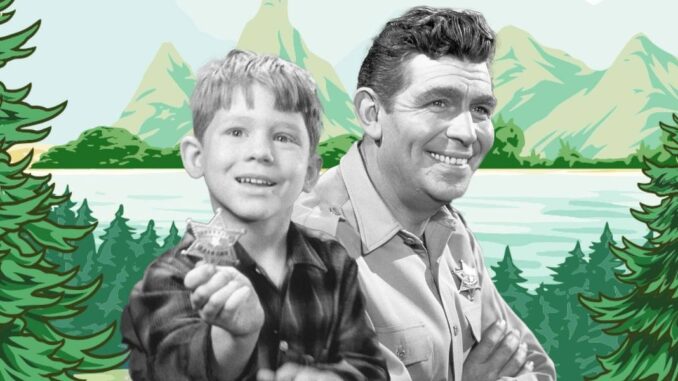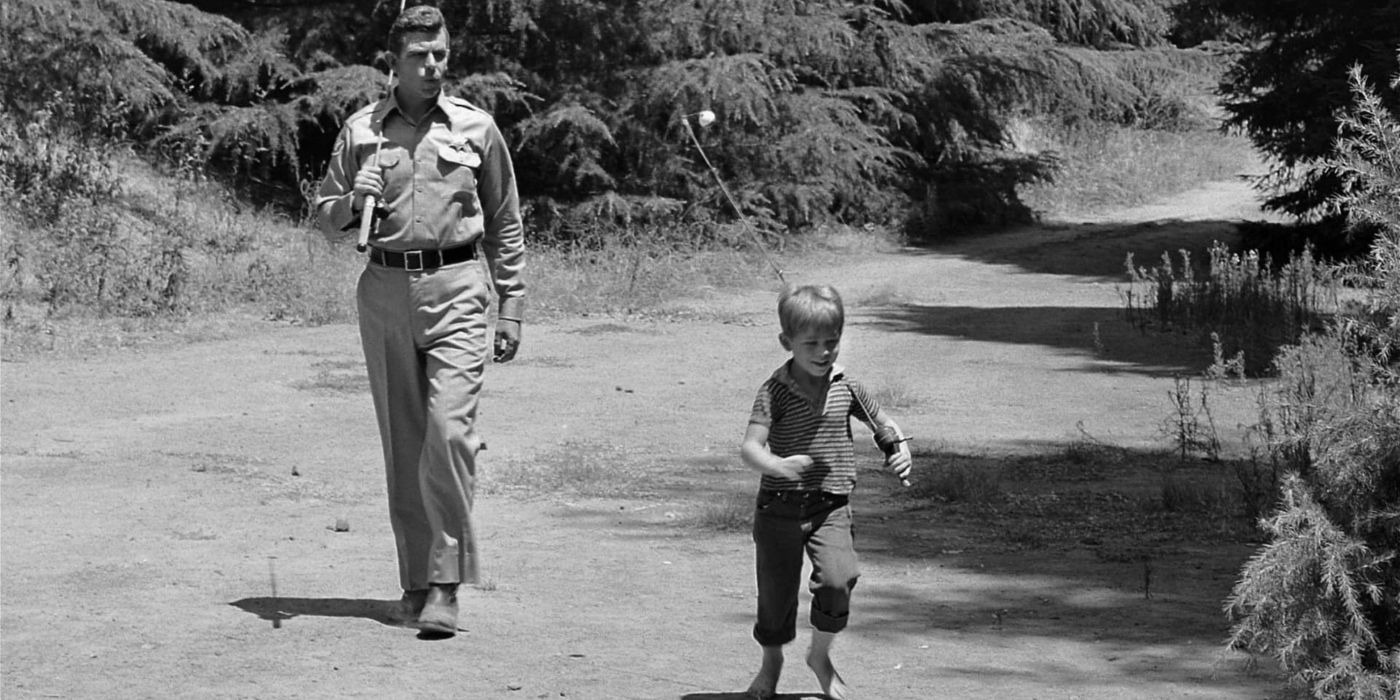
Introduction: The Opie We Almost Got — And Why It Didn’t Work
When you think of The Andy Griffith Show, one image likely springs to mind: little Opie Taylor walking with his father, fishing pole slung over his shoulder. But what if I told you that the Opie you remember wasn’t the Opie originally written into the show? What if the version of the character that became an icon was actually shaped behind the scenes — not by the writers’ room, but by Ron Howard’s own father?
Yep, that’s right.
Let’s dive into how Rance Howard — an actor, writer, and most importantly, Ron Howard’s real-life dad — played a pivotal role in reshaping one of television’s most enduring child characters. The transformation of Opie Taylor wasn’t just a lucky evolution — it was a carefully thought-out rewrite that changed the course of TV history.
The Original Opie: A One-Dimensional Child
A Flat Character from the Start
When The Andy Griffith Show premiered in 1960, Ron Howard was just six years old. The pilot episode featured Opie as a pretty standard TV kid — polite, obedient, and well…kind of dull.
There was no real spark, no depth to the child who was supposed to be Andy’s son. In fact, early test audiences and critics noted that the character felt more like a placeholder than a personality.
Ron Howard’s Talent Was Being Wasted
Even at a young age, Ron Howard had a quiet charisma that deserved better material. The writers knew they had something special — they just didn’t know how to tap into it.
Enter Rance Howard: The Quiet Architect
Who Was Rance Howard?
Before being known as “Ron Howard’s dad,” Rance Howard had a career in acting and writing. He worked in theater and early television and had a sharp sense of storytelling. More importantly, he had firsthand insight into how to raise a child with authenticity — something the show was sorely lacking when it came to Opie.
Father Knows Best — Literally
After watching the pilot script, Rance stepped in with a suggestion that would forever change the show. He told the producers, in no uncertain terms, that the dialogue and relationship between Andy and Opie didn’t feel real. There wasn’t enough emotional honesty between the two.
Rance offered to help rewrite scenes — not to make them dramatic, but to make them believable.
The Crucial Rewrite: Injecting Heart and Humanity
Making Opie a Real Kid
The major rewrite Rance helped shape brought Opie to life. Instead of being overly obedient or precocious, he became thoughtful, curious, and sometimes even stubborn — like any real kid.
This new version of Opie had genuine reactions. He questioned his dad, made mistakes, and sometimes said things that made Andy pause. That’s when the magic happened.
Creating a Strong Father-Son Bond
The rewrites also deepened the emotional connection between Andy and Opie. Their conversations suddenly felt like those between a single father and his growing son. It added weight to the show and gave it emotional stakes, which helped set The Andy Griffith Show apart from other sitcoms of the era.

Ron Howard Reflects: “That Made All the Difference”
A Child Actor’s Perspective
In interviews years later, Ron Howard recalled how different things felt after those rewrites. He said the words he was given began to make sense to him. He could feel the emotions behind the lines, which helped him act with more authenticity — even at such a young age.
Gratitude Toward His Father
Ron has frequently credited his father with being not just a guiding force in life, but a silent contributor to the success of The Andy Griffith Show. Without that rewrite, Opie might’ve faded into TV obscurity — a background child in a world built for adults.
Andy Griffith’s Reaction to the Changes
He Welcomed the Rewrite
Andy Griffith, who was hands-on with the show’s creative direction, immediately recognized the value in Rance Howard’s suggestions. He appreciated how the rewrite gave him more meaningful material to work with as an actor playing a father.
Shifting the Tone of the Show
The emotional depth added by the revised Opie character influenced the entire tone of the series. What started as a light-hearted sitcom gained a deeper emotional resonance — one that kept audiences coming back for more.
How Opie Became the Heart of Mayberry
Viewers Fell in Love with the New Opie
Once Opie’s character evolved, fans responded almost instantly. Letters poured in praising the father-son relationship and how real it felt. People saw their own families reflected on-screen — a rare thing for TV at the time.
He Grounded the Show in Reality
In a town filled with quirky characters like Barney Fife and Gomer Pyle, Opie brought balance. He kept things grounded. His moments with Andy gave the show emotional weight — a beating heart in the middle of Mayberry.
The Ripple Effect: A Template for TV Fathers
Changing TV Norms
The success of the Andy-Opie dynamic helped pave the way for more emotionally connected father figures in sitcoms. It challenged the stereotype of the aloof TV dad and introduced a model of parenting rooted in understanding, patience, and love.
Sitcoms That Followed the Blueprint
From Full House to Parenthood, countless shows owe a debt to the groundwork laid by Rance Howard’s rewrite. The formula of a caring, communicative parent became the new gold standard.
Behind Every Great Child Actor Is a Supportive Parent
Rance’s Influence Beyond Mayberry
Rance Howard wasn’t just a one-time contributor. He played small roles on the show and helped guide Ron’s early career decisions. His presence on set meant Ron always had someone who understood both the business and the art.
Why This Story Still Matters Today
In an era where child actors often face burnout or exploitation, the Howard family’s story stands out as an example of nurturing talent with integrity. That rewrite wasn’t just good for the show — it was good for Ron Howard as a human being.
The Rewrite That Became a Legacy
Opie’s Character Defined Generations
The revised Opie Taylor didn’t just fit into Mayberry — he became the emotional anchor of it. That rewrite made the character memorable, relatable, and deeply human.
Ron Howard’s Career Was Built on It
Let’s not forget — the early success Ron enjoyed as Opie laid the foundation for a career that would eventually include directing Apollo 13, A Beautiful Mind, and The Da Vinci Code. Without that rewrite, who knows where he’d be?
Final Thoughts: A Little Rewrite, A Lasting Impact
Sometimes, the smallest changes make the biggest difference. In the case of The Andy Griffith Show, a single character rewrite — quietly orchestrated by a father who just wanted his son to succeed — ended up transforming not just a role, but an entire show.
Opie Taylor wasn’t born a TV icon. He was written into greatness — with a little help from his dad.
FAQs
1. Who helped rewrite Opie’s character on The Andy Griffith Show?
Rance Howard, Ron Howard’s father, suggested key rewrites to make Opie more realistic and emotionally engaging. His changes shaped the show’s tone and elevated the father-son dynamic.
2. What was wrong with the original Opie character?
The original version was one-dimensional, overly obedient, and lacked emotional depth. Test audiences found him forgettable until the character was rewritten.
3. How did the rewrite affect the show’s success?
The rewrite created a genuine emotional core between Andy and Opie, which resonated with audiences and became one of the most beloved aspects of the show.
4. Did Andy Griffith support the changes to Opie?
Yes, Andy Griffith welcomed the suggestions. He saw the potential in deepening the relationship and quickly embraced the new direction.
5. How did Ron Howard feel about playing Opie after the rewrite?
Ron Howard said the character finally made sense to him. The more authentic lines helped him perform better and connect with audiences — even as a young child actor.